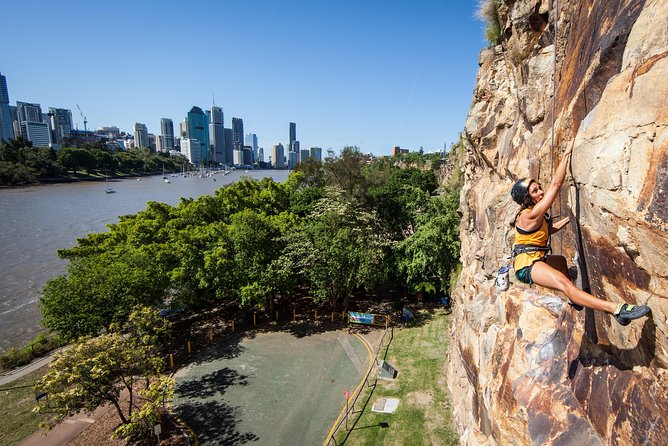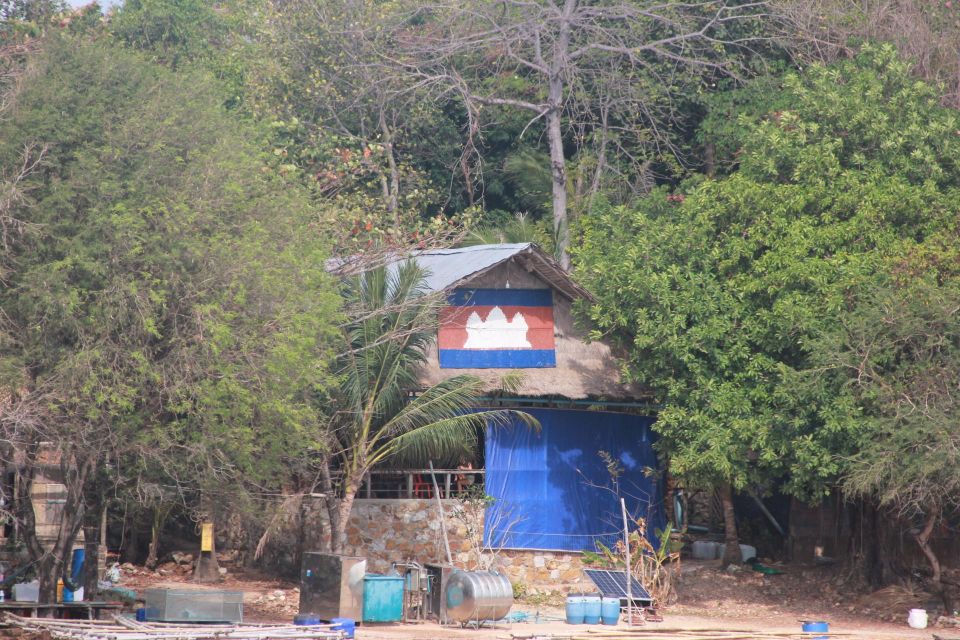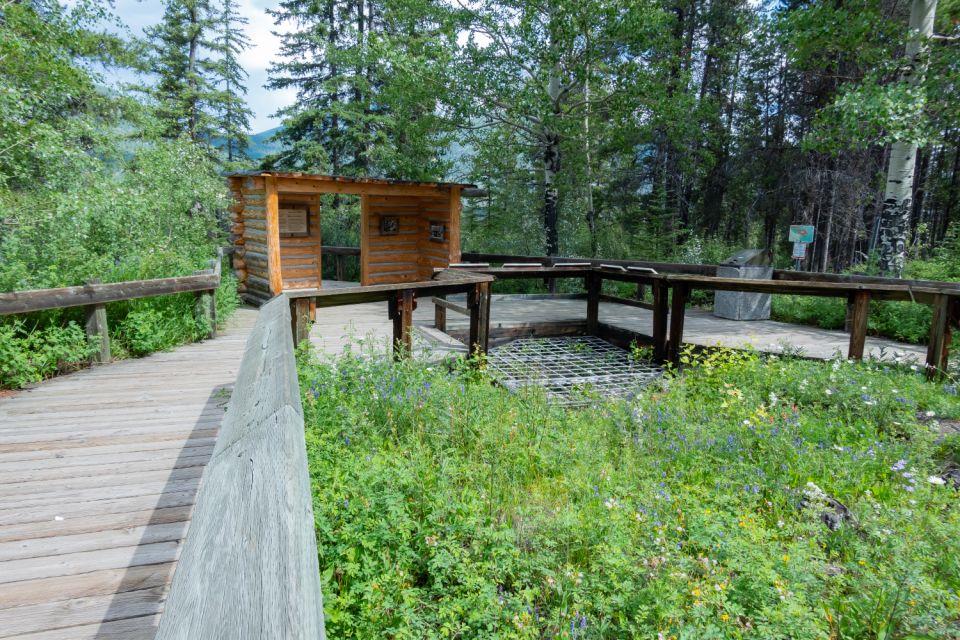As the sun dips below the equator, casting a golden hue over Quito’s cobblestone streets and iconic landmarks, a unique blend of latitude and heritage unfolds in this captivating city.
The intersection of history and geography paints a compelling portrait of Quito’s past and present, inviting exploration into its rich cultural tapestry.
From the indigenous influences woven into the city’s fabric to the colonial architecture that adorns its skyline, Quito’s allure is undeniable.
But what lies beyond the surface of this UNESCO World Heritage Site is a story waiting to be unravelled, a narrative that promises to reveal the hidden depths of Quito’s identity and spirit.
Just The Basics
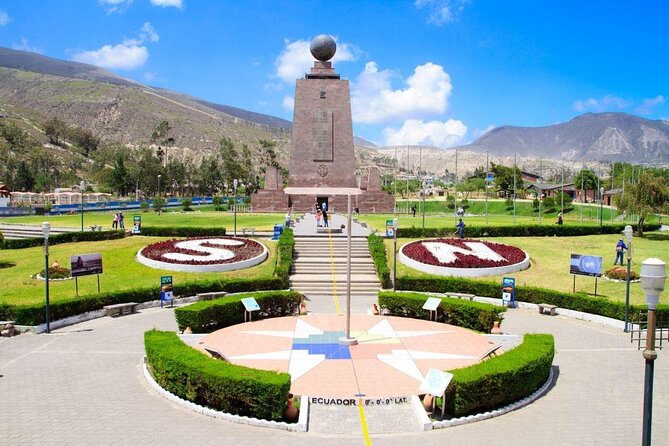
- Quito’s heritage showcases a vibrant mix of indigenous, Spanish, and mestizo influences.
- The city’s latitude influences its consistent day length and mild climate.
- Historical landmarks like San Francisco Church and Independence Square reflect Quito’s rich heritage.
- The culinary and artistic scene blends traditional recipes with modern elements, reflecting the city’s dynamic culture.
It's also worth checking out some other tours and experiences nearby.
Overview of Quito’s Heritage
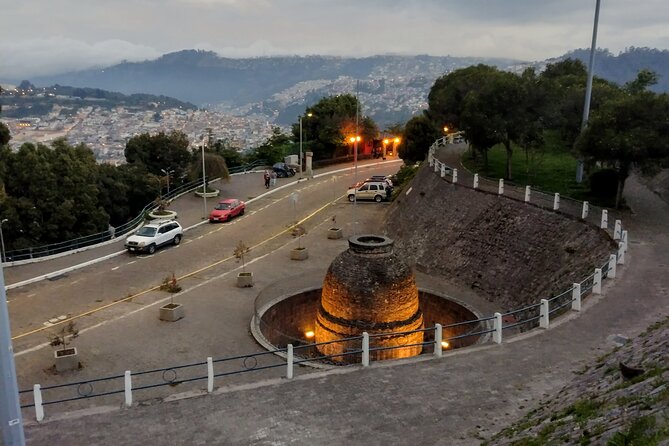
Quito’s heritage is a rich tapestry woven with historical significance and cultural treasures that captivate visitors from around the globe.
Exploring traditions deeply rooted in Ecuador’s history, Quito showcases a blend of indigenous, Spanish colonial, and modern influences. The city’s heritage can be seen in its well-preserved historic center, where ancient Incan sites intertwine with Baroque architecture.
Quito’s heritage is a testament to its diverse past, offering a glimpse into the customs and beliefs that have shaped the city over centuries. Modern influences have also made their mark, with contemporary art galleries, vibrant street markets, and a burgeoning culinary scene adding a dynamic layer to Quito’s cultural landscape.
Visitors are invited to enjoy this fusion of tradition and innovation, experiencing the essence of Quito’s unique heritage firsthand.
Exploring Quito’s Latitude
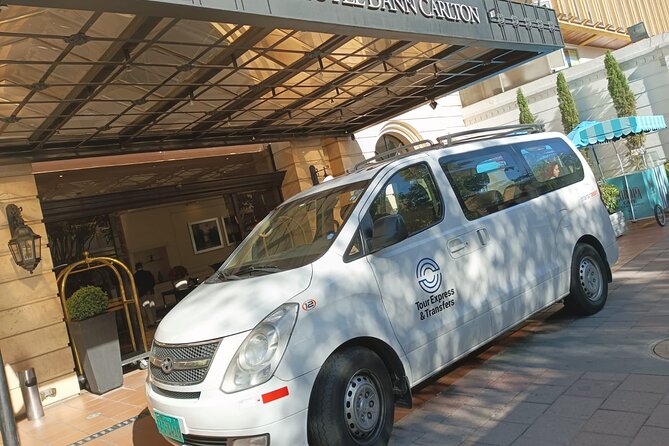
Nestled near the equator, Quito’s latitude plays a pivotal role in shaping the city’s unique climate and geographical characteristics. The exploration of Quito’s latitude reveals intriguing insights into the city’s environment:
- Quito’s proximity to the equator results in relatively consistent day length throughout the year.
- The city experiences mild temperatures due to its high elevation, offering a pleasant climate for visitors.
- The latitude contributes to the rich biodiversity found in the surrounding areas, making Quito a nature lover’s paradise.
- Climate variation within the city is influenced by its location on the equator, leading to diverse microclimates across different neighborhoods.
Historical Landmarks in Quito
Discover the rich tapestry of historical landmarks that adorn the vibrant city of Quito, showcasing its storied past and cultural significance.
Quito boasts a multitude of architectural marvels with deep historical significance. Visitors can marvel at the beauty of the San Francisco Church, a stunning example of Spanish colonial architecture.
The historic center of Quito, a UNESCO World Heritage Site, is home to the impressive Independence Square, where key events in Ecuadorian history unfolded.
Another must-see is the ornate Compañía de Jesús Church, known for its intricate Baroque style. These landmarks not only reflect the city’s rich history but also offer insight into its cultural diversity and the fusion of indigenous, Spanish, and mestizo influences.
Cultural Diversity in Quito
With its vibrant mix of indigenous, Spanish, and mestizo influences, Quito showcases a rich tapestry of cultural diversity that captivates visitors from around the world. The city’s cultural traditions are deeply rooted in its history, offering a glimpse into the customs and practices of its diverse population.
When it comes to local cuisine, Quito boasts a mouthwatering array of dishes that blend traditional recipes with modern influences, satisfying even the most discerning palates. Exploring the markets and food stalls in Quito is a culinary adventure not to be missed, allowing visitors to taste the unique flavors and ingredients that define Ecuadorian cuisine.
- Rich cultural traditions
- Vibrant local cuisine
- Diverse population influences
- Culinary adventure in markets
Quito’s UNESCO World Heritage Sites
Quito’s UNESCO World Heritage Sites showcase a fascinating blend of history and culture that enthralls visitors with their architectural grandeur and historical significance. The sites provide a window into Ecuador’s rich heritage, offering a glimpse of the city’s past and its cultural evolution.
Visitors can explore traditional cuisine at local markets, savoring flavors that have been passed down through generations. Plus, they can admire the craftsmanship of local artisans, whose intricate designs reflect the city’s vibrant artistic community.
These UNESCO World Heritage Sites not only serve as a testament to Quito’s historical importance but also offer a unique opportunity to take in the traditions and talents of the local culture.
Quito’s Colonial Architecture
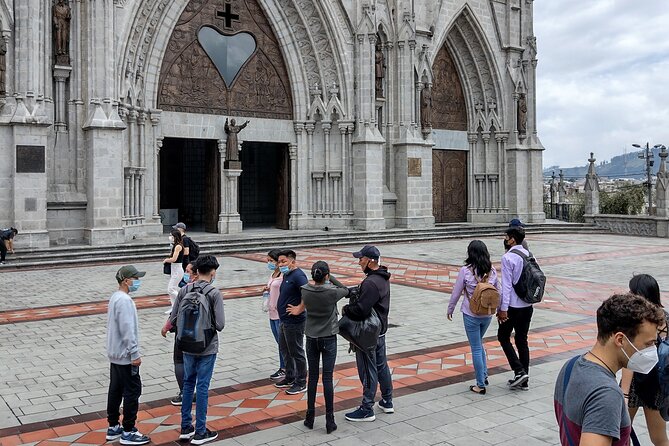
Quito’s Colonial Architecture stands as a living testament to the city’s rich historical narrative, where echoes of the past resonate through its enchanting streets and ornate buildings. The colonial charm of Quito’s architecture is a sight to behold, showcasing a blend of Spanish and indigenous influences that create a unique aesthetic.
Some architectural details that captivate visitors include:
- Elaborate wooden balconies adorned with intricate carvings
- Baroque facades embellished with religious symbols and motifs
- Cobblestone streets lined with colorful colonial houses
- Grand plazas featuring impressive colonial-era churches
Each building tells a story of Quito’s colonial past, inviting travelers to enjoy the city’s architectural heritage.
Indigenous Influence in Quito
The indigenous heritage of Quito intertwines seamlessly with its modern identity, adding depth and cultural richness to the city’s vibrant tapestry. Indigenous traditions have played a significant role in shaping Quito’s unique character and are evident in various aspects of everyday life, from the local cuisine to traditional festivals. The integration of indigenous influence into the city’s fabric reflects a harmonious blend of old and new, preserving ancestral customs while embracing contemporary developments. This fusion not only highlights the resilience of indigenous communities but also showcases Quito’s commitment to honoring its roots. Below is a table illustrating the impact of Indigenous Influence in Quito:
| Impact of Indigenous Influence in Quito | ||
|---|---|---|
| Cultural Traditions Preserved | Ancestral Knowledge Shared | Community Integration Achieved |
Preserving Quito’s Heritage
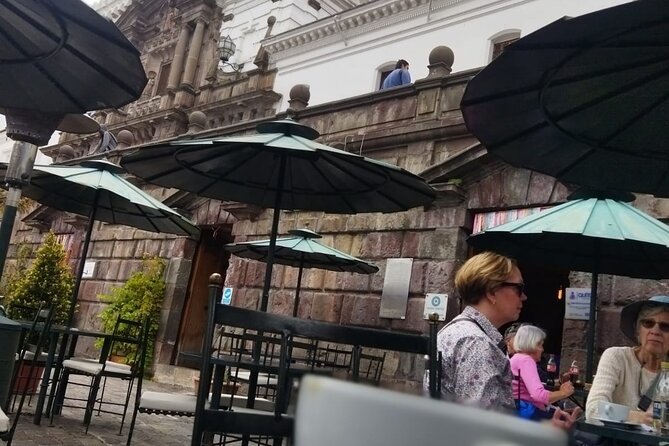
Preservation of the heritage in Quito requires a concerted effort from both locals and authorities to ensure the city’s historical significance endures for future generations. Quito’s rich heritage conservation efforts are vital for maintaining its cultural identity and historical value. To achieve this goal, the following steps can be taken:
- Implementing strict building regulations to preserve historical architecture.
- Conducting regular maintenance and restoration of heritage sites.
- Educating the community about the importance of preserving Quito’s heritage.
- Establishing partnerships between government agencies, local communities, and heritage preservation organizations to collaborate on conservation projects.
Here's a few more nearby tours and experiences we think you'll like.
Common questions
What Is the Best Time of Year to Visit Quito for a Cultural Experience?
The best time to visit for a cultural experience would be during local festivals or events that showcase traditional customs and practices. By immersing oneself in these celebrations, visitors can truly appreciate the richness of the region’s heritage.
Are There Any Unique Festivals or Events in Quito That Showcase Its Heritage?
There are vibrant cultural celebrations and heritage events that showcase local traditions and indigenous customs in Quito. These unique festivals offer a glimpse into the rich heritage of the region, providing an immersive experience for visitors.
How Has Quito’s Heritage Influenced the Local Cuisine?
Local cuisine in Quito is deeply rooted in its heritage. Influences from traditional recipes, ingredients sourced locally, and culinary traditions passed down through generations shape the flavors. Cultural celebrations play a vital role in preserving and evolving these culinary treasures.
Can Visitors Participate in Any Traditional Ceremonies or Rituals in Quito?
Visitors can engage in traditional rituals for immersive cultural experiences. Participating in these ceremonies offers insights into local customs and fosters a deeper connection with the community. It’s a unique way to embrace heritage.
Are There Any Lesser-Known Sites in Quito That Are Worth Exploring for a Deeper Understanding of Its Heritage?
For a deeper understanding of its heritage, hidden gems in Quito offer culture. These lesser-known sites provide unique insights into the city’s rich history and traditions, making exploring beyond the usual attractions a rewarding experience.
Not for you? Here's more of our most recent tour reviews happening neaby
- Quilotoa Crater Lake Private Day Tour: Trekking, Market, Art and Llamas
- Photography Tour Quito at Night & Urban Legends
- Otavalo Nature and Culture
- Otavalo Market and Mindo Cloud Forest Tour 3-Day 2-Night
- Kana Yaku Trek
- Private Transpor for Tours, Transfers, Visits, Etc, for 8 Hours
- Quito Old Town Tour by Bike – Private Tours
- Roses & Horseback Riding (Private Day Trip From Quito)
- Excursion to Cotopaxi National Park and Limpiopungo Lagoon (Mar )
- Private Tour Cotopaxi National Park, Hike to 4800 Meters
- Discover Baños and the Jungle in 3 Days, 2 Nights
- Private Papallacta Biking Experience
- Full Quito City Tour Including Middle of the World and Teleferico Cable Car
- Quito Small-Group 3-Day Amazon Tour (Mar )
- Ecuador 11-Day 1st Class: Galapagos, Quito, Otavalo, Quilotoa (Mar )
Last Words
As the sun sets over the majestic mountains of Quito, one can’t help but feel the heartbeat of this historic city. From its colonial architecture to its vibrant cultural diversity, Quito’s heritage shines brightly in every corner.
With UNESCO World Heritage sites and a strong indigenous influence, Quito’s past is preserved and celebrated for all to see. The spirit of Quito is alive and well, beckoning visitors to explore its rich history and promising a future filled with wonder.

